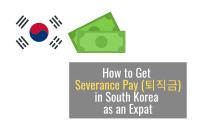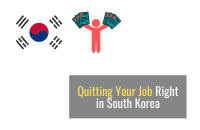This guide will help you understand Korean work culture and get along with your coworkers and bosses.
It teaches:
- How to build relationships
- What’s expected of you
- What you can get away with
- What to avoid
I worked at Korean companies for 5 years.
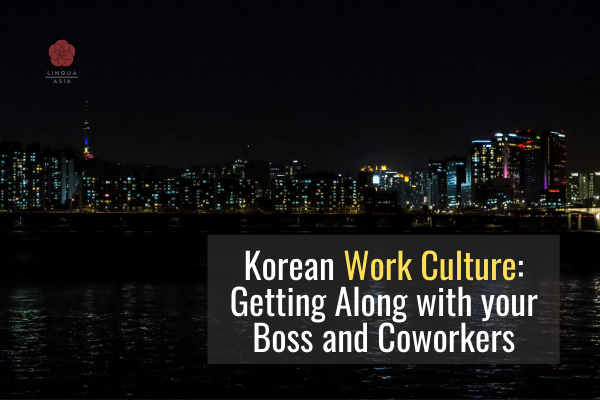
Key Takeaways
- Never finish early.
- Be a team player (or at least appear to be).
- Don’t be the first to admit a mistake.
- Use Excel background for KakaoTalk.
- Learn one song for noraebang.
Origins of Korean Work Culture
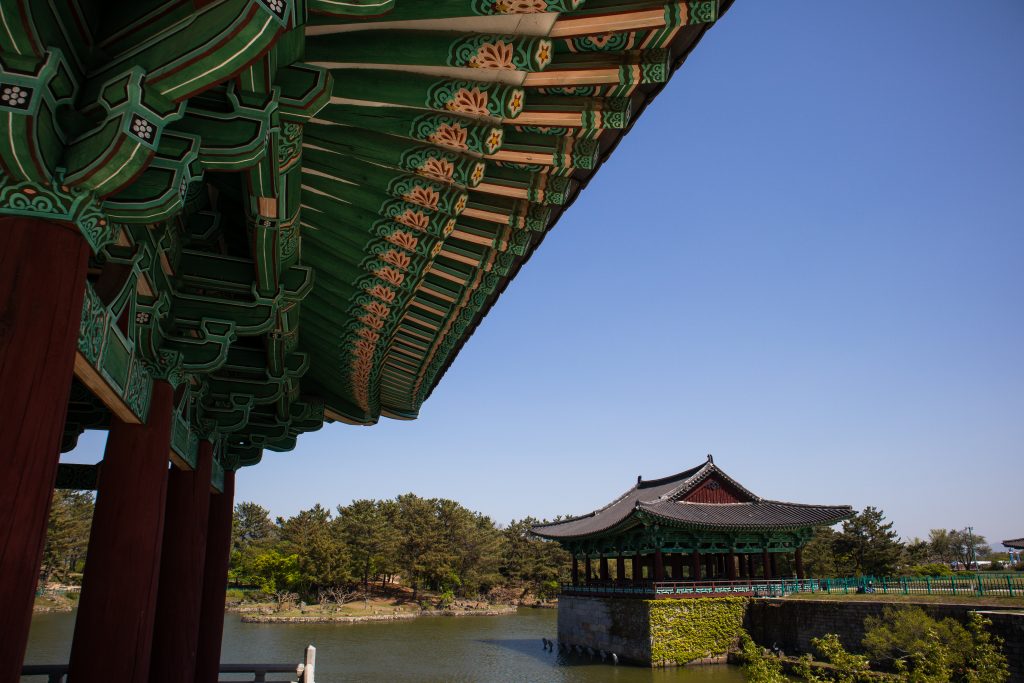
- Myeolsabonggong: a concept borrowed from Japan, which means, “sacrifice yourself for the good of the community”.
- Confucianism: A belief system with a hierarchy based on title and age.
- Military hierarchy: from the Korean war and the military dictatorships that followed.
- Jeong (정): unspoken bond that is uniquely Korean. When jeong works, it’s a beautiful thing. I’d imagine it’s a net positive in smaller groups where people look after each other. In a mega city with 10 million people, it can misfire.
- Chaemyeon (체면): face or reputation. Chaemyeon makes people behave better in public, but tends to prevent progress by concealing problems.
- Gibun (기분): mood and feelings. Understand your bosses’ and you’ll have an easier time.

Tips on How to Survive in a Korean Work Environment
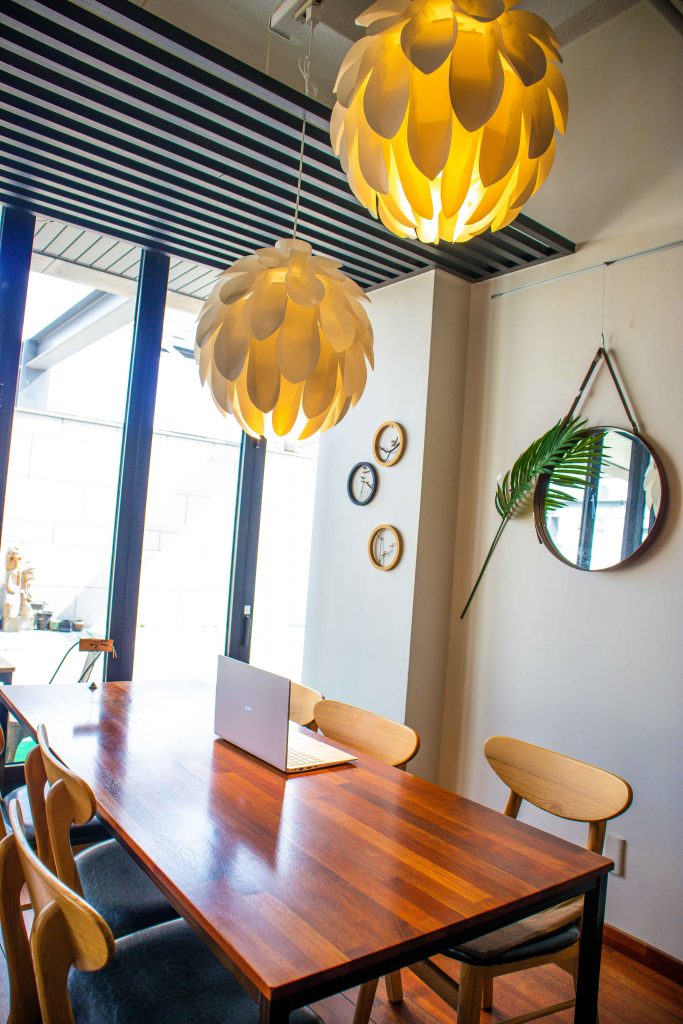
Consider each of these like a strand in a spider web. Each one will bolster the other to make the office environment easier.
- Never finish early: Stretch out your work to fill the day. Avoid approaching productivity with the mentality of your home country. As soon as you finish tasks, you’ll just get more. It’s also not about efficiency, it’s about appearances.
- Do the medium: The key lesson every Korean male learns during their mandatory military service. If you perform too poorly, they’ll fire you. If you perform too well, you’ll be given all the work.
- Use correct titles: Find out how Koreans address each other at work. Don’t use kinship terms such as unnie, hyung, oppa or noona. It will make you look unprofessional.
- Get a screen hobby or study secretly: Everyone else is shopping online and vacation planning. Learn a language or coding in your downtime.
- Get in good with your boss: Nothing will make things more difficult than a boss who hates you. Swallow your pride and spend time getting to know their preferences and stroke egos tastefully. It also helps to have some funny, self-deprecating stories that elevate the boss lined up for hweshiks. It’ll make things easier when it’s time to negotiate raises or take a vacation.
More about Negotiating in South Korea
- Be a team player (or at least appear to be): Bring in snacks weekly and small vacation souvenirs. Have lunch with coworkers one more time per week than you’d prefer (everyday is way too often for me). Take smoke breaks or have coffee with people you like. Help those who ask for it with things you can handle once in a while, but don’t let it become part of your job description.
- Pace yourself: Always appear to be busy, but when the work becomes too much, sit with your boss and explain the situation.
- Don’t be the first to admit a mistake: In a progressive work environment, this shows character. In a Korean work environment, it shows weakness.
- Treat those below you well: This isn’t necessary, but I like to work in a place where people aren’t actively plotting my demise.
- Use Excel background for Kakao Talk: Always look busy, even when you’re not.
- Keep your head down: Never ever correct, criticize or second-guess your superiors in public, no matter how tempting it is. No one will support you and it’ll only make things harder.
- Take breaks whenever you can: I’m talking bathroom and smoke breaks, even if you don’t smoke. Always volunteer for errands. You never know when the next wave of work will come.
- Ignore social pressure: It’s only real if you let it be. They’ll have a hard time firing you after three months due to Korean labor laws. Don’t be afraid to say “It will be difficult” at times when it’s too much.
- Learn one song for noraebang: Either get really good at it or make it really funny. It will pay dividends. Bonus points for learning a trot song.
Hagwon VS Office Job Environments in Korea
There are some major differences between working at a private language academy and a company.
Working at a hagwon can be pretty nice, because you teach your 30 hours or so a week and that’s pretty much it.
Anything you do above that is paid overtime.
More about teaching English in Korea
Working at a company means your hours are unlimited. You are paid a fixed salary and the company will work you as much as they can.
Hweshiks are optional at hagwons if you’re a foreign teacher. Hweshiks are mandatory at companies.
Work can be repetitive and somewhat discouraging at hagwons. Work can be diverse at an office, and you can learn many new life skills.
| Hagwon | Office Jobs | |
| Mandatory hweshiks | V | |
| Unpaid overtime | V | |
| Health insurance | V | V |
| Pension | V | V |
| Office politics | V |
Ways Korean Work Culture is Improving

Like I’ve said before, if you don’t like Korea now, just wait a few years. It’s progressing at a rapid pace.
Korean labor unions fought hard in the 80s and 90s to get weekends off. You can still see them fighting to this day if you go to Gwanghwamun or Yeouido
Here are some ways work culture has gotten better in the last 10 years.
- More women are entering the workforce.
- Work hours are limited to 40 a week at government offices and large companies like Samsung. (they don’t always follow this, but it’s a good start)
- The internet is helping whistleblowers. Korean Air peanut scandal saw the abused employees get paid instead of fired and swept under the rug like in the past.
- The pandemic has reduced hweshik and MT while increasing remote work.
- Minimum wage has been raised.
- Internships are now paid a minimum salary and are provided benefits including insurance.
- It’s harder to get fired after the 3-month probation period.
More about Interviewing in South Korea
My Experience Working in a Korean Office
I worked part-time at a few companies as a lecturer and overseas marketer for a few years. I was getting by, but felt I was stagnating. I wanted to work full-time at one company, so I could build a career. Part-time work is not considered a real job in Korea. I disagreed with this until I started working full-time. The lifestyle and mentality are totally different.
You become part of a community in ways that surprised me. Office politics ramp up to 11 and I definitely stood out. I had a good relationship with the owner, so that shielded me from many things.
In hindsight, I should have given the middle-managers more attention and spent some time getting to know them. You must respect the hierarchy in Korea.
I still disagree with the idea that staying late to just shop online and chat on Kakao is dedication, while finishing your tasks during work hours and leaving on time is slacking.
To be fair, I didn’t exactly work at a fortune 500 company. There are well-organized and healthy office environments in Korea.
Things I enjoyed about Korean company culture:
Spring cleaning days – everyone is expected to pitch in and clean the office periodically. The same applies to schools and the military. I think it’s a good way to build rapport and a sense of community.
Random free food – It seems like everyone is bringing in snacks, coffee and food throughout the week. That always makes the day a little better.
Job security – If your boss likes you, they’ll take care of you for life. They call it your “line”. My former roommate tended to follow his boss to other companies every few years until he became CEO. That type of job security is hard to find.
Expanding job description – If you speak English, you’ll be the unofficial company lawyer, marketer, entertainer of foreign clients and anything else involving the language. I was uncomfortable with this at first, but then saw the advantage of learning multiple skills. In the end, it gave me the confidence to start my own business, because I could pick up anything.
Things I disliked about Korean company culture:
Lack of clear feedback and expectations – This might have more to do with the place I worked than Korean office culture, but goals were vague and the company vision was unclear. I never knew if we were going in the right direction or I was doing enough.
Hweshik (semi-mandatory office gatherings) – These were fun at first, then became a chore. It’s a free night of eating, drinking and singing noraebang. But, it often turns into impromptu work meetings. There are a few things I’d rather do than get drunk and discuss work with my boss after hours.
MT (membership training) – You go to the mountains for the weekend with coworkers, play games and get drunk in a pension. Or you might go skiing or biking along the Han River before getting drunk. You’re definitely getting drunk though. Like the above, it’s great at first then becomes a bit much.
Surprise unpaid overtime – I worked nights and weekends often because everyone was doing it, and if I didn’t, someone else would have to. The same can be said for many modern companies though.
Harsh fluorescent lighting – This comes off as whiny, but they’re draining. If I’m going to be inside for 10 hours a day, it can at least be somewhat pleasant, not lit up like an interrogation room. I’ve been told that this type of lighting is used in schools and colleges to keep students awake so they’ll study.
More about Jobs in South Korea as an Expat
I’m glad I worked in a Korean office environment. These experiences shaped me into who I am and showed me what I do and do not value.
More about Doing Business in South Korea
FAQ
How can I get along with coworkers in Korea?
- Bring snacks or coffee
- Have lunch or coffee with them
- Never criticize them in public
- Empathize with their problems
What is the Korean work environment like?
It’s like a family with a strict hierarchy based on title, seniority and age.
Why is Korean work culture so tough?
Because of Korea’s history, education and culture. Life is tough in Korea from school to mandatory military service to the first job.
What is the Korean attitude towards work?
For the older generations, it was necessary to eat and lift the country out of poverty. For younger generations, it is more of a necessary evil.
What should I avoid in Korean work culture?
These are some common mistakes when working in Korea:
- Bragging or showing off (don’t drive a better car than your boss)
- Being too productive
- Leaving early or appearing like you’re not a team player
- Being uncomfortable with change or the unexpected
- Being too direct
- Dressing or grooming poorly
- Dominating conversations
- Having a boss who dislikes you
Did we miss anything?
At the end of the day, Korean work culture is similar to that of any other modern country.
A little bit of compromise and understanding can go a long way.
Let us know your experiences in a Korean office in the comments below!

